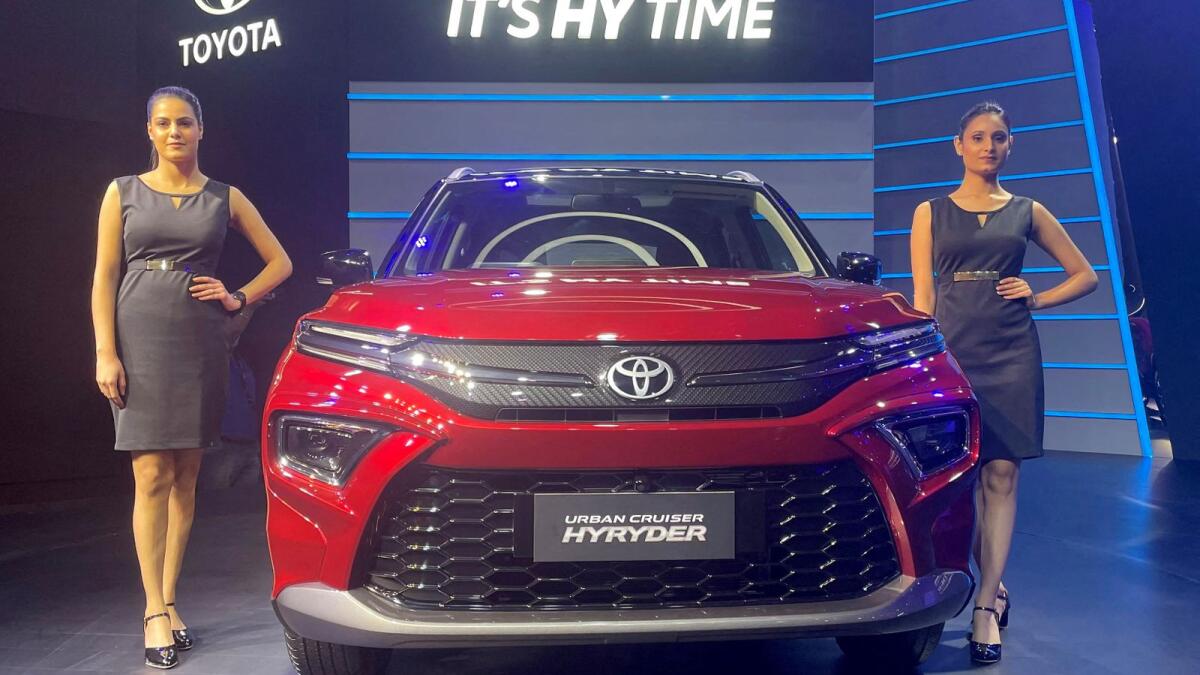In India, there has been a recent push by Japanese automakers Toyota and Maruti Suzuki to market their hybrid cars, especially in the populous state of Uttar Pradesh. The main reason behind this marketing push is the implementation of tax waivers on hybrid cars that give a significant competitive advantage to these companies compared to other automakers like Tata Motors, Mahindra and Mahindra, and Hyundai. While some automakers are lobbying to reverse this decision, Toyota and Maruti Suzuki are capitalizing on the opportunity and aggressively promoting their hybrid models to potential customers.
Sunny Toyota showroom in Lucknow, the capital of Uttar Pradesh, has instructed its salespeople to reach out to customers who visited in the last six months to inform them about the tax waivers on hybrid cars. The tax waivers result in savings of up to $15,800 on the Toyota Vellfire model and $5,200 on the Camry sedan, which incentivizes potential buyers to make the switch to hybrid vehicles. Various marketing methods, including Instagram ads and telesales, are being utilized to promote the benefits of hybrid cars and encourage customers to take advantage of the savings offered by the tax waivers.
The tax waivers in Uttar Pradesh have significantly reduced the cost of hybrid cars, making them a more attractive option for consumers looking to purchase new vehicles. The savings provided by the tax waivers have led to a surge in enquiries about hybrid cars at Toyota and Maruti Suzuki dealerships. Salespeople have been given sales targets to meet and are actively promoting hybrid models to customers who may have previously considered purchasing gasoline or diesel variants. The tax incentives have created a sense of urgency among customers, prompting them to make quicker decisions to take advantage of the benefits before the scheme potentially ends.
Maruti Suzuki has seen a significant increase in showroom enquiries since the implementation of tax benefits for hybrids, with customers showing a growing interest in switching to hybrid vehicles. Online and WhatsApp ads from dealerships are highlighting the tax benefits and incentivizing customers to consider investing in hybrid models. With the sales pressure mounting on dealerships, the focus has shifted towards increasing sales of hybrid cars to meet the demand generated by the tax waivers. The positive response from customers and the rise in hybrid car sales indicate a promising future for hybrid vehicles in the Indian market.
Toyota, known for prioritizing hybrid technology over electric vehicles globally, is reaping the benefits of its strategy in India. With concerns about charging infrastructure and high prices limiting the demand for EVs, hybrids have emerged as a more practical and accessible option for consumers. The tax waivers in Uttar Pradesh have further boosted the appeal of hybrid cars, positioning them as a cost-effective and environmentally friendly alternative to traditional gasoline or diesel vehicles. As more customers become aware of the savings offered by the tax benefits, the demand for hybrid cars is expected to continue rising in the state and potentially influence buying trends in other regions as well.
The positive response to hybrid cars in Uttar Pradesh is a testament to the impact of tax incentives on consumer behavior and purchasing decisions. With the support of tax waivers, Toyota and Maruti Suzuki have successfully captured the attention of customers and are driving sales of hybrid models in the state. The competitive advantage gained by these automakers through the tax benefits demonstrates the importance of government policies in shaping the automotive industry and influencing consumer preferences. As the demand for hybrid cars continues to grow in India, other states may consider following suit and implementing tax incentives to support the adoption of environmentally friendly vehicles in the country.








